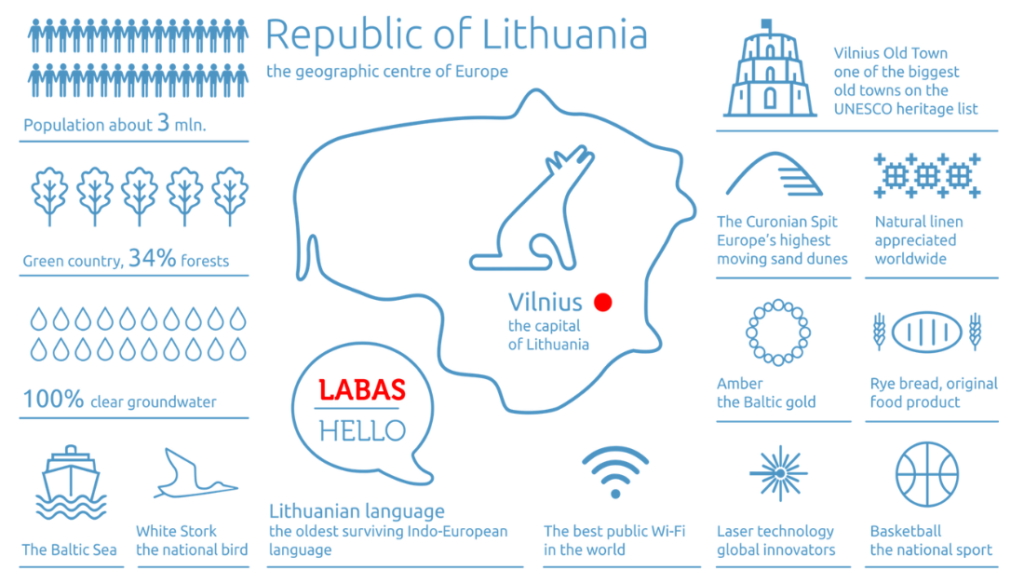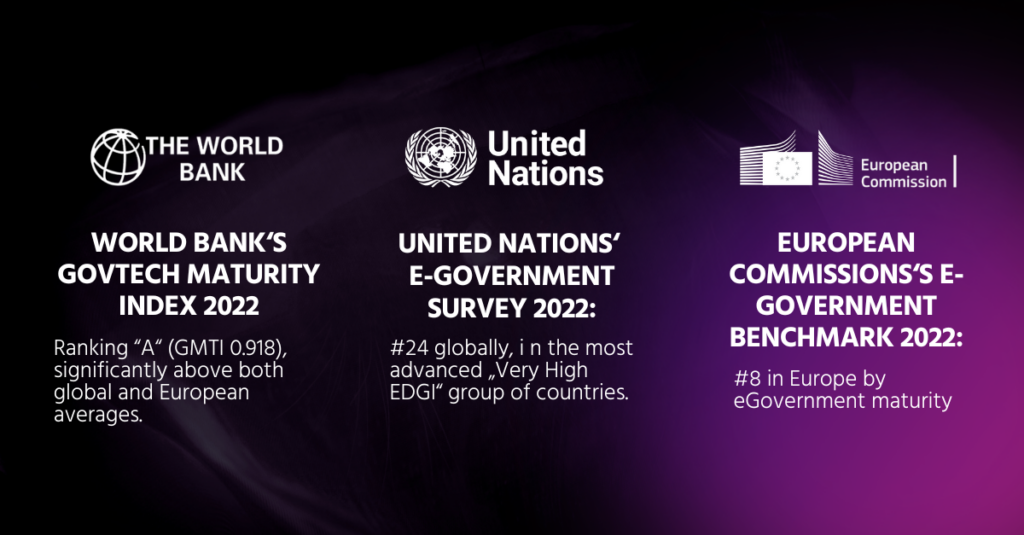Lithuania’s digital government ranks amongst the most advanced providers of government e-services. Expert offers some insights into how Lithuania and other countries can transform and improve their digital government maturity.

Global rankings that assess the level of development of digital government solutions often include Lithuania amongst the best in class. This indicates that good strategic decisions made some years ago, and their smart execution, are now bearing fruit. However, the world is rapidly progressing, so to maintain its position and even improve it, Lithuania must pick up the pace. To improve further, it needs focus, strategic thinking, and a clear vision, says Ieva Žilionienė, Consulting Business Lead at NRD Companies, a global IT and consulting group of companies specializing in governance and digital infrastructure development.
Amongst leaders
According to the 2022 GovTech Maturity Index published by the World Bank, Lithuania ranks 8th with a rating of 0.981 out of 1.0, while the world average stands at 0.522 and the European average at 0.698. Lithuania, which was ranked 39th in 2020, has demonstrated significant progress, especially in the public services digitalization maturity area.
A second index, the E-Government Development Index, published by the United Nations and compiled since the early 2000s, demonstrates how digitalization results in different countries have changed over time. In 2022, Lithuania achieved a rating of 0.8745 out of 1.0 and has risen from 43rd to 24th place within a span of 20 years.
The European Commission E-Government Benchmark, which measures the maturity of e-government service provision throughout Europe, ranked Lithuania 8th out of 35. The country is praised for the availability of services using eID, as well as for the use of pre-filled forms containing data already available to the state, which significantly simplifies the ordering of services. Yet, Lithuania is classified as an “Expandable e-government” country, indicating that while it has many excellent digital services, their use is still somewhat below European average.

“On the one hand, these internationally acclaimed assessments demonstrate that the digitalization strategy of government services in the last couple of decades has been very successful. On the other hand, they also point out where the country can still make progress, not for the sake of climbing higher in the indices, but for making life more convenient for its residents and businesses”, says Žilionienė.
Government services – fewer is actually better
Žilionienė believes that although it may sound counterintuitive, Lithuania has reached such a level of digital government development that further progress and benefit to society should not be measured by an increase in the number of digital services but rather a decrease. “There is no need to digitalize every single minute paper-based process. First of all, we need to review various services, decide if they are really needed, or can be scrapped altogether. The strategy should be to aspire to fewer and fewer such processes that require human interactions which focus on “asking,” “ordering,” or “applying” for a service. Give up what is insignificant and, using the abundant data already accumulated by the state, simplify or even automate the provision of these services.”
Such simplified and proactive service delivery saves time for those in need of government services and for those providing them. It presents an opportunity to receive benefits offered by the state without actually requesting them.
A good example of such a process are the proactive services offered by SoDra, the State Social Insurance Fund Board under the Ministry of Social Security and Labour which administers social security related services in Lithuania. Starting in 2022, specific individual benefits, such as “single person allowance”, are assigned and paid automatically, based on marital status data available in the Population Register. No calls to SoDra and no visits to the institution’s offices are required, except when certain information is missing in the state information databases, in which case a person is contacted to verify them. SoDra promises that this is just the beginning and that many more such services will follow.
In some cases, full process automation may not be possible, especially if it requires for the final data to be verified and confirmed by a human. However, in these cases, user experience can also be significantly improved not only by pre-filling all possible input fields with data already possessed by the state, but also by replacing complex forms with questionnaires formulated in plain and easy to understand language. The majority of Lithuanians are using such digital services on an annual basis, declaring their personal income taxes with the help of a smart Digital Tax Return Wizard. When possible to handle such procedures quickly, easily, and without the intervention of accounting professionals, Lithuanian’s lives become truly easier.
Another example of services related to particular life events, which typically require contact with various institutions, procedures, and requests, is the Lithuanian E-Government Gateway (www.epaslaugos.lt). It offers a life-event service, “Birth of a Child,” which allows declaring the child’s place of residence, submission of an application for a one-time allowance for a newborn, applying for parental benefits, and requesting parental leave from the employer with just one click of a button. Additional life-event services, such as “Lost my job”, “Traveling abroad,” and “Became a farmer”, were just recently launched through the Gateway.
Fastest route to success
An ambitious strategic vision and a clear system of measurable indicators are important next steps for further improvement of any country’s digital government.
A strategic ambition must be both inspiring and measurable. For example: becoming a country with the fastest delivery of public services, at the lowest cost by using intelligently digitalized processes and smart use of data.
The indicator should not be the number of digitalized services but rather the real value created by them, such as how much processing time can been saved, how efficient the process has become for the institution and the service recipients, and how individuals evaluate their user experience.
Žilionienė, who personally contributed to the major digital transformation reforms in Lithuania while working for Lithuania’s government Information Society Development Committee, and the Communications Regulatory Authority, and is now assisting clients in Dominica, Trinidad & Tobago, Sint Maarten, Moldova, Somalia and others, suggests that leadership is crucial. “It is important to identify who is responsible for these processes, and who has the power and capacity to manage them effectively. This requires not only a mandate but also the necessary tools and capabilities and, in some cases, especially in developing contexts, the support and guidance of external experts, practitioners in the field”.
Resources are always scarce, including funds, talent, and time, so it is crucial to determine the most effective ways to use them. While it is easy to compose sound strategies with plenty of buzz words and phrases, it is more important to translate these strategies into coherent steps that involve various stakeholders.
The world is constantly changing, so being comfortable with the status quo actually means regressing. Openness to change should not be a mere declaration, but a way of life. Yes, it is a challenge. However, greater openness and collaboration between institutions and society – people, businesses – would not only facilitate the achievement of set goals but also increase mutual trust and the sense that by working together, we can accomplish much more.














